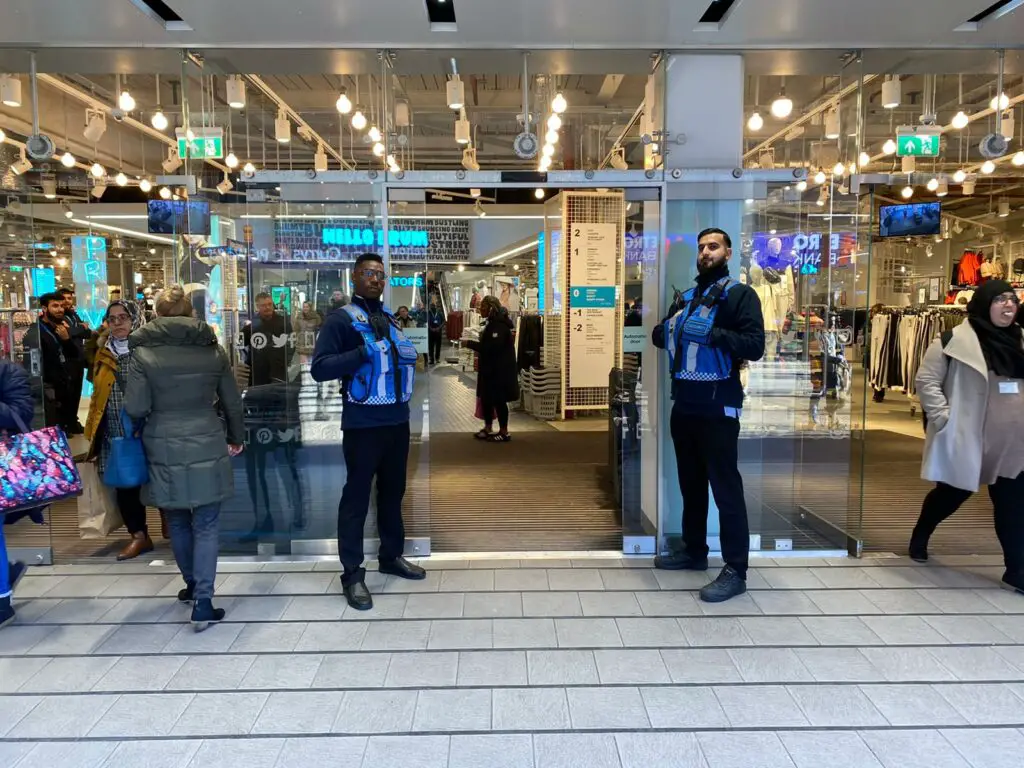In the bustling world of retail, where transactions occur rapidly and inventory moves swiftly, maintaining security is essential to safeguarding both assets and customers. It serves as the frontline of defense against various threats, including theft, vandalism, and fraud. In this inclusive guide, we explore a range of effective security practices designed to protect stores, employees, and patrons alike. From traditional methods to cutting-edge technologies, these practices form the cornerstone of a robust security strategy for any retail establishment.
Understanding Retail Security
At its core, it encompasses a diverse set of practices aimed at preventing loss, ensuring safety, and maintaining order within retail environments. From physical security measures such as surveillance cameras and access control systems to operational procedures like inventory management and employee training, it involves a multifaceted approach to mitigating risks and safeguarding assets.
Physical Security Measures
Physical security measures form the backbone of any security strategy. This includes installing security cameras strategically throughout the store to monitor activity and deter theft, implementing access control systems to restrict unauthorized entry to sensitive areas, and installing alarm systems to alert staff and authorities in the event of a security breach. Additionally, visible deterrents such as security guards and anti-theft tags on merchandise can help deter would-be criminals and enhance overall security.
Employee Training and Awareness
Employees are often the first line of defense against retail security threats, making inclusive training and awareness programs essential. Retail staff should be trained to identify suspicious behavior, handle security incidents effectively, and adhere to established security protocols. By empowering employees with the knowledge and skills needed to respond to security threats, retailers can significantly enhance the effectiveness of their security measures.
Inventory Management and Loss Prevention
Effective inventory management is crucial for minimizing losses due to theft and shrinkage in retail environments. Retailers should implement inventory tracking systems to monitor stock levels, identify discrepancies, and detect potential instances of theft or fraud. Additionally, employing loss prevention strategies such as merchandise tagging, employee audits, and periodic inventory checks can help deter theft and ensure the integrity of retail operations.
Utilizing Technology for Enhanced Security
Advancements in technology have revolutionized retail security, offering retailers a range of innovative tools and solutions to enhance security and reduce risk. This includes the use of advanced surveillance systems with features such as facial recognition and behavioral analytics, as well as integrated security platforms that enable real-time monitoring and response. By leveraging technology effectively, retailers can bolster their security posture and adapt to evolving threats in the retail landscape.
Integrating into Business Operations
Effective retail security requires a holistic approach that integrates security considerations into all aspects of business operations. This includes establishing clear security policies and procedures, conducting regular security assessments to identify vulnerabilities, and fostering a culture of security awareness among employees and customers alike. By making security a priority at every level of the organization, retailers can create a safer and more secure environment for their stores and stakeholders.
The Importance of Continuous Improvement
In the dynamic landscape of retail, where threats evolve and vulnerabilities shift, the pursuit of continuous improvement in security practices is paramount. Retailers must remain vigilant and proactive in identifying emerging risks and adapting their security strategies accordingly. By regularly evaluating and updating security measures, staying abreast of industry trends and best practices, and investing in innovative technologies, retailers can enhance their ability to detect, deter, and respond to security threats effectively. Continuous improvement in security not only strengthens the protection of assets and the safety of customers but also reinforces the trust and confidence of stakeholders in the retail environment.
Conclusion
In conclusion, retail security is a critical component of maintaining the safety and integrity of retail operations. By implementing an inclusive security strategy that incorporates physical security measures, employee training, loss prevention strategies, technology solutions, and a culture of security awareness, retailers can effectively safeguard their stores against threats and minimize losses. As the frontline of defense against theft, vandalism, and fraud, it plays a vital role in protecting assets, ensuring customer safety, and preserving the reputation and viability of retail businesses.







